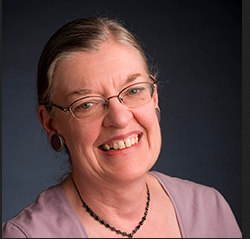
Home >
News & Events >
Upcoming Events
Learning to talk by talking: from early speech acts to academic language
Last updated:2017-11-15
World Distinguished Scholar Forum—Sun Yat-sen University
Title: Learning to talk by talking: from early speech acts to academic language
Speaker: Professor Catherine E. Snow (Harvard Graduate School of Education, Elected member of American Academy of Arts and Sciences)
Date: November 21, 2017 (Tuesday)
Time: 4:15-6:15 pm
Place: Lecture Hall 101, School of Foreign Languages
Speaker Bio:

Catherine Snow is an expert on language and literacy development in children, focusing on how oral language skills are acquired and how they relate to literacy outcomes. Snow has chaired two national panels: the National Academy of Sciences committee that prepared the report "Preventing Reading Difficulties in Young Children," and the Rand Reading Study Group that prepared "Reading for Understanding: Toward an R&D Program in Reading Comprehension." Her research activities include a longitudinal study of language and literacy skills among low-income children who have been followed for 15 years since age three; following the language development of young children participating in the Early Head Start intervention; studying the vocabulary development of first- and second-language learners; and considering aspects of transfer from first to second language in the domains of language and literacy. Her book, Preparing Our Teachers: Opportunities for Better Reading Instruction, is one of several efforts she is involved in to develop consensus among teacher-educators about what pre- and in-service elementary teachers need to know about language and literacy. Snow has also written about bilingualism and its relation to language policy issues such as bilingual education in the United States and in developing nations, and about testing policy. She is currently involved in efforts to improve middle-school literacy outcomes, in partnership with other Boston area researchers and the Boston Public Schools.
Abstract:
Many scholars have concentrated on the role of input in language acquisition -- how, in either a first or a second/foreign language, the quality of talk heard from native speakers affects the process of learning. In fact, though, language acquisition is at least as (or more?) dependent on the learner's output -- their efforts to express key intentions and understandings, and the problem-solving involved in succeeding at that task. Roger Brown noted that children could no more learn language without observing sentences moving back and forth from themselves to their caregivers than they could learn about conservation of volume without pouring liquids into different sized vessels. Similarly, I argue, students cannot learn the complexities of academic language and argumentation without participating in the back-and-forth of discussions, and without producing their own versions of these language forms so they can notice how they work and how others respond. These claims suggest the value of much greater attention to opportunities for discussion in classrooms serving both first and second language learners.
